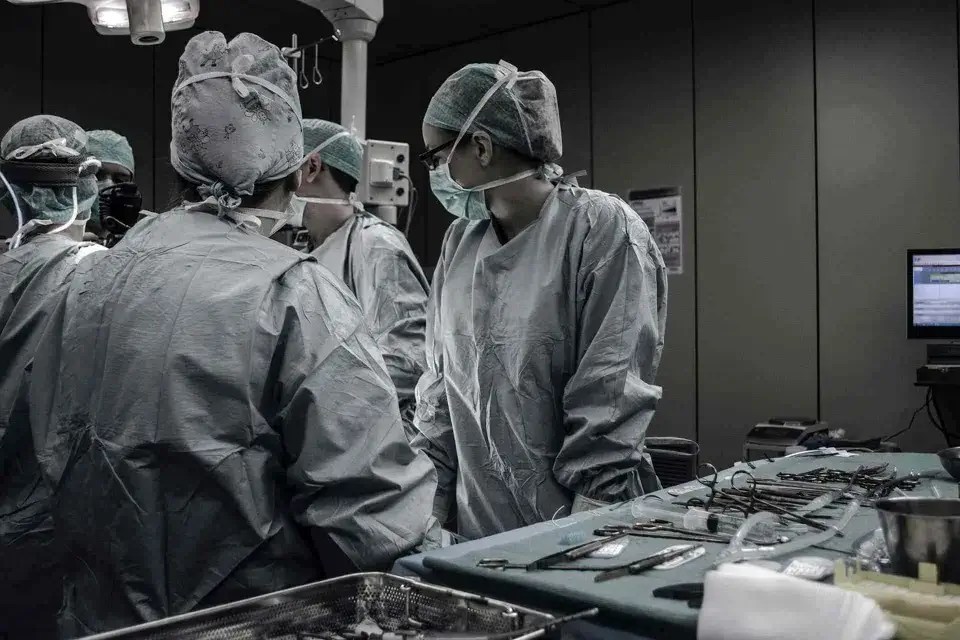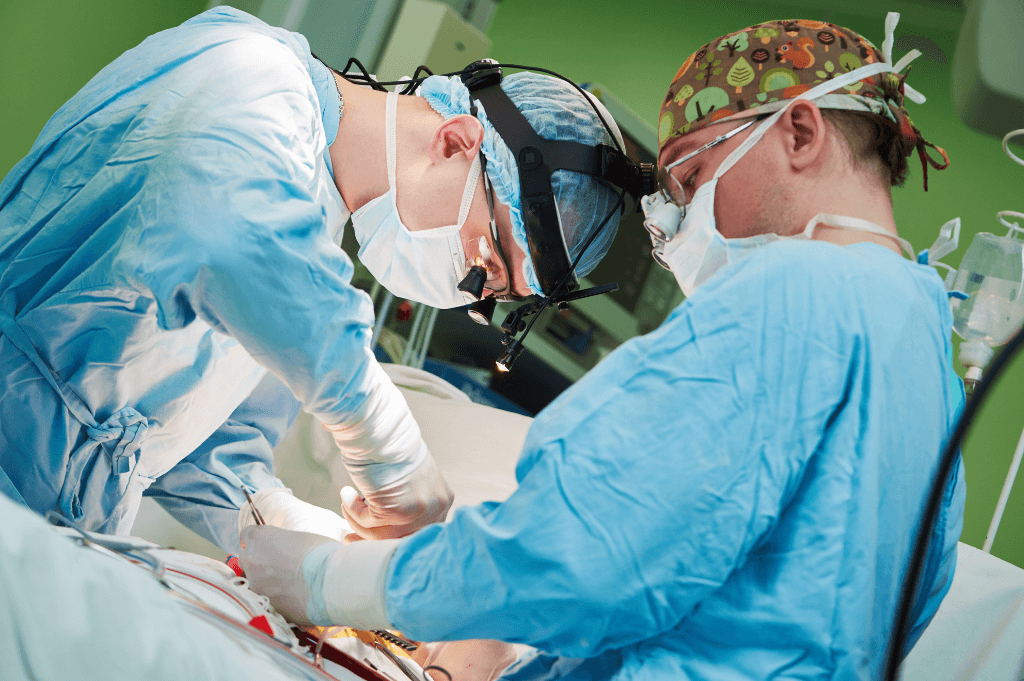
What Is a Thoracic Surgeon: Role, Procedures, Education and Career Path
Explore the engaging world of thoracic surgery and the opportunities that await future practitioners.
Have you ever wondered about the medical specialists who perform intricate surgeries on the lungs, esophagus and other critical organs within the chest?
These experts are known as thoracic surgeons. They are highly trained physicians who diagnose and operate on diseases affecting the organs inside the thorax (the chest), excluding the heart.
This blog will explore what a thoracic surgeon does, the educational path into this demanding field and the rewarding career that awaits those who succeed. Read on to learn more.


What Is a Thoracic Surgeon?
A thoracic surgeon is a medical doctor who specializes in surgical procedures involving the organs and structures within the chest cavity. This area, known as the thorax, includes the lungs, esophagus (the tube connecting the throat to the stomach), trachea (windpipe), chest wall, diaphragm, and mediastinum (the area between the lungs containing the heart, major blood vessels and other tissues).
It’s important to distinguish a general thoracic surgeon from a cardiothoracic surgeon; while a cardiothoracic operates on the heart as well, a general thoracic surgeon focuses on the non-cardiac components of the chest.
Thoracic surgeons are experts in both traditional open surgeries and minimally invasive techniques, such as video-assisted thoracoscopic surgery (VATS) and robotic-assisted surgery. Their work is crucial in treating a range of conditions, from lung cancer and esophageal disorders to traumatic chest injuries.
You can explore 14 different types of surgeons and their areas of expertise on our blog here.
What Do Thoracic Surgeons Do?
The role of a thoracic surgeon is multifaceted, going far beyond the operating room. Their responsibilities include the entire patient care journey. So, what do thoracic surgeons do on a daily basis?
- Performing Surgery: This is their primary function. Procedures can range from biopsies, to obtaining tissue samples for testing, to complex resections (removals) of tumors or entire organs.
- Patient Consultation and Diagnosis: They meet with patients referred by other physicians, review medical histories, interpret diagnostic tests (like CT scans, MRIs and PET scans) and confirm diagnoses.
- Treatment Planning: They develop comprehensive surgical treatment plans tailored to each patient’s specific condition, discussing the risks, benefits and alternatives with the patient and their loved ones.
- Post-Operative Care: They manage patient recovery after surgery, addressing pain, monitoring for complications and ensuring proper healing before discharge.
- Collaboration: They work closely with a multidisciplinary team, including oncologists, pulmonologists, radiologists and nurses, to provide the best possible patient outcomes.
What Conditions Do Thoracic Surgeons Treat?
Thoracic surgeons treat a wide array of diseases and conditions affecting the chest. Some of the most common include:
- Lung Cancer: This is a primary focus area. Surgeons perform lobectomies (removing a lobe of the lung) or pneumonectomies (removing an entire lung) to treat cancer.
- Esophageal Cancer and Disorders: They operate on cancers of the esophagus, as well as benign conditions like achalasia (difficulty swallowing) and gastroesophageal reflux disease (GERD) that hasn’t responded to other treatments.
- Chest Wall Tumors and Deformities: This includes treating tumors in the ribs or sternum and correcting congenital deformities like pectus excavatum (funnel chest).
- Diseases of the Thymus Gland: Such as thymoma, a tumor associated with myasthenia gravis.
- Hyperhidrosis: A condition of excessive sweating, often treated with a sympathectomy.
- Trauma: They repair damage to the chest caused by accidents or injuries.
- Pleural Diseases: Conditions affecting the pleura (lining of the lungs), such as pleural effusion (fluid buildup) or pneumothorax (collapsed lung).
When non-surgical options fail, patients are referred for these expert interventions.
For related respiratory healthcare insights, check out What Is a Pulmonologist? Education, Skills and Career Path.
How to Become a Thoracic Surgeon?
The path to becoming a thoracic surgeon is long and demanding, requiring a significant commitment to education and training. Here is a step-by-step breakdown of how to become a thoracic surgeon:
- Earn a Bachelor’s Degree: The first step is most often a four-year undergraduate degree. While there is no specifically required “pre-med” major, students must complete pre-requisite courses in biology, chemistry and English in order to qualify for entry into a 4-year Doctor of Medicine (MD) program.
- Graduate from Medical School: At Saba University School of Medicine (SUSOM), the MD program encompasses 10 semesters, five in Basic Science and five in Clinical Medicine. The first two years are classroom-based on the island of Saba, while the final two involve clinical rotations in the U.S. (core and electives) and Canada (select electives).
- Complete a General Surgery Residency: After medical school, graduates enter a five- to seven-year residency program in general surgery. This provides broad-based training in surgical principles and techniques.
- Complete a Thoracic Surgery Fellowship: Following general surgery residency, surgeons complete an accredited fellowship program in thoracic surgery, which typically lasts two to three years. This is where they gain specialized expertise in chest surgeries.
- Obtain Board Certification: Finally, thoracic surgeons often become board-certified by passing rigorous examinations administered by the American Board of Thoracic Surgery (ABTS). This certification demonstrates a surgeon’s expertise and commitment to the highest standards of care.
Thoracic Surgeon Education Requirements
The thoracic surgeon education requirements are extensive. The foundational requirement is a medical degree from an accredited medical institution.
The path to that degree begins with a strong undergraduate education. For aspiring physicians whose undergrad education did not include all the prerequisite MD program courses, there are also pre-med education options like the Pre-Medical Master’s Program, which is perfect for career-changers who have completed only some foundational science coursework.
Such programs cover the necessary pre-requisite coursework and advanced scientific training necessary for aspiring physicians to succeed in med school.
How Long Does It Take to Become a Thoracic Surgeon?
The timeline is substantial. When considering how long does it take to become a thoracic surgeon, you must account for:
- Undergraduate Degree: 4 years
- Medical School: 4 years
- General Surgery Residency: 5-7 years
- Thoracic Surgery Fellowship: 2-3 years
In total, the educational and training pathway takes a minimum of 15 to 18 years after high school. This does not include additional time that may be spent in research or pursuing further sub-specialization.
For more about in-demand specialties, see our blog on What Are the Most In-Demand Physicians?
Thoracic Surgeon Salary and Career Outlook
The financial and professional rewards reflect the long training period. A thoracic surgeon’s salary is among the highest in medicine.
The average thoracic surgeon salary in 2025 is $521,887 USD annually in the U.S., ranging from $426,812 to $663,950 USD based on experience and location, as per Salary.com data.
The career outlook is also strong. There is a consistent demand for highly skilled surgeons to treat conditions like lung cancer, which remains a leading cause of cancer-related death.
Advances in minimally invasive surgical techniques continue to expand treatment options, ensuring this field remains dynamic and in need of expert practitioners.
What Is the Difference Between a Thoracic Surgeon and a Cardiothoracic Surgeon?
This is a common point of confusion. The distinction lies in the scope of their practice:
- A general thoracic surgeon focuses exclusively on non-cardiac organs within the chest. Their expertise is in the lungs, esophagus, trachea and chest wall.
- A cardiothoracic surgeon has a broader scope that includes the heart and its major blood vessels (aortic arch, etc.), in addition to the organs treated by a general thoracic surgeon.
Many surgeons train in cardiothoracic surgery but may later choose to focus their practice specifically on general thoracic or cardiac surgery.
About SUSOM
If you dream of becoming a medical doctor, whether as a thoracic surgeon or another kind of specialist, Saba University School of Medicine can provide the training, support and guidance you need to achieve your goals.
Since 1992, 3,500+ aspiring medical experts have graduated from our MD program. Alumni then go on to practice in the U.S., Canada and internationally.
If you want to join our community of success, contact us today to learn more about everything SUSOM has to offer. You can also get a glimpse of our campus and hear from a successful graduate in this video:
Then when you’re ready, get your med school journey started by learning how to apply!
FAQs About Thoracic Surgeons
You would typically be referred to a thoracic surgeon by your primary care physician, or a specialist like a pulmonologist, if you have a condition in your chest that may require surgical intervention. Common reasons include a suspected or confirmed lung tumor, esophageal disorder, required biopsy of a mass in the chest or a traumatic injury to the chest cavity.
Yes, becoming a thoracic surgeon is challenging. It requires exceptional academic ability, a strong work ethic, resilience, and a commitment to over a decade and a half of rigorous training after high school. The field is highly competitive and demands extensive expertise, strong decision-making under pressure and emotional fortitude.
One of the most common procedures performed by thoracic surgeons is a lobectomy, the removal of one lobe of a lung, most often to treat lung cancer. Other very common surgeries include video-assisted thoracoscopic surgery (VATS) for biopsies and the treatment of pleural effusions or pneumothorax.
A pulmonologist is an internal medicine physician who specializes in diagnosing and treating diseases of the respiratory system (lungs and breathing) using non-surgical methods like medication, inhalers and bronchoscopies. A thoracic surgeon is a surgeon who treats diseases of the chest through surgical operations. They often work together; a pulmonologist may manage a patient’s lung disease medically and refer them to a thoracic surgeon if an operation becomes necessary.

For Prospective Students
SUSOM is committed to supporting prospective students throughout the admissions process. Please click the following links for detailed information about each topic: